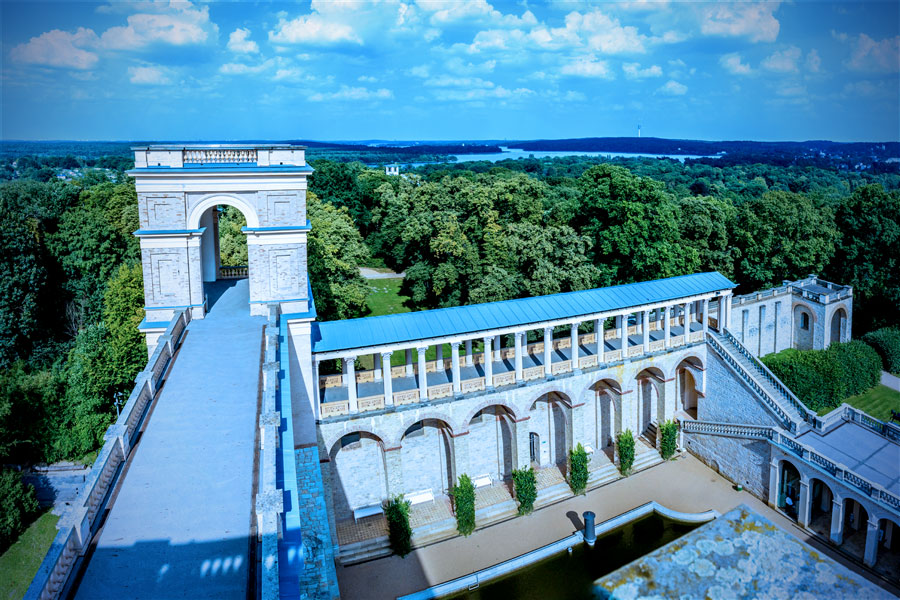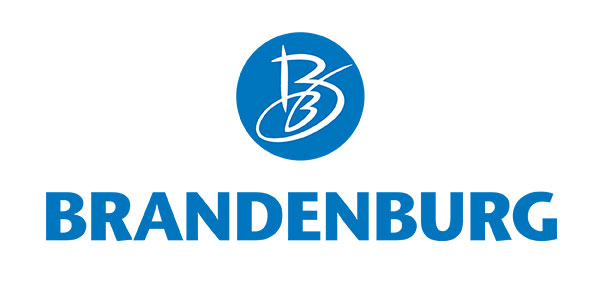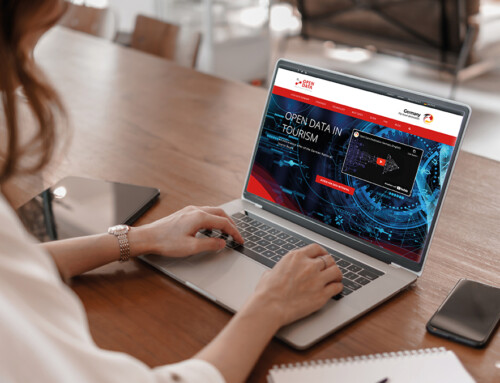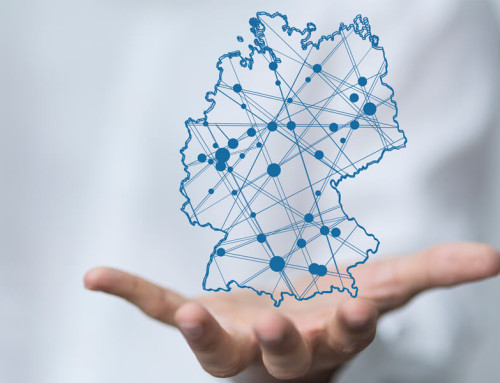“Our goal: good data-based services for customers and tourism partners. In this context, open data will become increasingly important in the future.”
Tourismus-Marketing Brandenburg GmbH (TMB) received the 2018 German Tourism Award for its Brandenburg Content Network. Objective for this database: To make high-quality digital content available nationwide – and beyond. What is the current status here?
Numbers, Data, Facts
The Brandenburg content network consists of…
All this data ends up here:
If you ask Jan Hoffmann, Head of Corporate Development and Cooperation Management at TMB, he sees two elements, among others, as essential for success: “On the one hand, we started very early with the topic of data. As a result, at the beginning of our work in 2001, we did not yet find a heterogeneous system landscape in data management in the state of Brandenburg. On the other hand, we work very individually and can adapt many things within the database according to the wishes of our partners. A complex control of rights and a real client management system are helpful here.” For example, if a partner needs the control “This provider is a member of the association.”, this is not added at regional level, but already within the database itself. The same applies to categories, certificates and alike. The system is therefore fully customizable.
Good data management as the basis for Open Data
Although Brandenburg’s data is already labelled according to schema.org, it is not yet represented as an Open Data Hub – as is the case in South Tyrol or Salzburg, for example. What is currently missing for this is that the image rights must first be transferred to the logic of the Creative Commons licenses that is customary for Open Data. For each image, it is necessary to know who is allowed to use it and in what form: only non-commercial or also commercial providers, only in its original or also modified form? Hoffmann comments: “We are in the process of amending the relevant contracts, incorporating licensing into the databases and much more. But it will take some time before the media holdings are prepared in such a way that we can offer them in an Open Data Hub.”
Nevertheless, the Brandenburg data can already be used by external parties. The use is based on agreements and individual adaptations for the respective partner. One could therefore speak of “controlled and customized data”: Anyone who wants to use the data usually contacts TMB and then everything else is coordinated together.
For Hoffmann, looking at the tourism sector at the moment, “Open Data is only the second or third step after the first. You have to be careful that you don’t overtake yourself,” he jokingly remarks. There is a lot of talk about Open Data, but in his opinion it is first and foremost about data management. This must be organised both “humanly” and technically. “To me, Open Data is primarily an output form of data, albeit a very exciting one.”
How can we build nationwide services based on data?
In Brandenburg, it has been found in recent years that it is not enough for only individual regions or federal states to have well-structured data. Interested supra-regional partners are often unable to use these, as they require data for the whole of Germany. Jan Hoffmann therefore: “I would like us to manage that all countries deal with the topics of data management and common data standards. In that context, we can then also deal with open data.” He adds: “A great deal has happened here in the past year with partners from the other federal states and the GNTB. That makes me optimistic.
It is important to him that the topic of data is actually understood. “Building digital structures is like having a child – but one that never grows old and leaves home.” Anyone who sets up digital structures has to think very carefully about them beforehand. And be aware that framework conditions are constantly changing. The database must therefore always be further developed, which requires corresponding resources.
Not to forget: the guest.
Jan Hoffmann says, “Sometimes technology is put before the goal and the actual use case.” This means: first of all, it is necessary to find out what the guests actually need. Above all, this is a good product. This is therefore the first thing to take care of. Because nobody has ever booked a holiday just because of good dates. However, the data can be used to optimize the on-site product experience for the guest.
To see what existing data can be used for, TMB conducts test balloons, for example in connection with movement or weather data. These pilot projects help to understand concrete use cases, which is particularly interesting for excursion traffic (around 100 million excursions per year).
TMB is equally concerned with the topic of individualisation. Which contents can be pre-filtered for the guest – which should he better filter himself? “The topic of how we can individualize websites has been haunting me for 15 years, for sure.” The information terminals, whichplay out the data of the Brandenburg content network in Brandenburg, could display the content according to a socio-demographic classification of the user. “We are currently testing whether we can actually improve the service for customers in this way. Of course, content is displayed based on the location of the info terminal. However, the guest selects criteria such as time or weather himself. Who knows whether they are looking for inspiration for the current moment or for tomorrow? Ultimately, only the guest himself.”
Not everything that can be done with data is actually useful.













